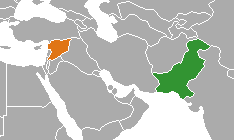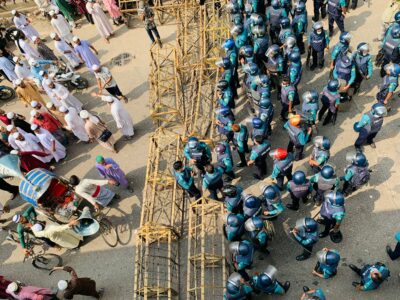08-10-2024
Valentina Palcovicova
South and East Asia Researcher,
Global Human Rights Defence.
Rape has long been a critical issue in India, yet a significant legal loophole persists. While Section 375 of the Indian Penal Code criminalises rape, it includes an exemption stating that sexual intercourse or any sexual act by a man with his own wife is not considered rape, provided the wife is over 15 years of age.
This concept in India originates from British colonial-era law in the 1860s, which outlined several exemptions to rape, including one that allowed a man to have sexual relations with his wife, as long as she was not a minor. This notion is based on the concept that consent for sex is implied within marriage and cannot be withdrawn. However, this is an age-old belief, and marital rape has now been criminalised in over 100 countries. In 1991, Britain also abolished the “implied consent” argument, stating that it could no longer be “seriously maintained” in modern times.
Over the years, petitions have been filed in order to strike down section 375 of the Indian penal code. International organisations, including the United Nations, Human Rights Watch and Amnesty international, have also issued concerns about India’s refusal to criminalise marital rape.
Contradictory judgments have been given by the courts occasionally allowing a husband to be tried for rape but dismissing the petition.
The state responded to the issue in a 49-page affidavit submitted in the Supreme Court on October 3rd. The report emphasised that marriage is a unique relationship with its own “ecosystem” of laws, rights and responsibilities. It stated that criminalising marital rape could seriously affect the conjugal relationship and potentially disrupt the institution of marriage. The affidavit notes that while there is a “continuing expectation of reasonable sexual access” between spouses, this does not give a husband the right to force his wife into sex. However, it argues that including marital rape in anti-rape laws would be “excessively harsh” and “disproportionate.” It also states that there are already existing laws on domestic violence, sexual harassment, and assault to provide protections for married women.
The home ministry further stated that marriage is a social institution, and the concerns raised by petitions to criminalise marital rape are more social than legal, suggesting that Parliament should decide on the matter.
Sources and further readings:
Indian Penal Code, Act No. 45 of 1860. Retrieved October 8, 2024, from https://www.indiacode.nic.in/show-data?actid=AC_CEN_5_23_00037_186045_1523266765688&orderno=424
Jha, S. (2021, September 15). India’s marriage law excludes marital rape from definition of rape. BBC News. Retrieved October 8, 2024, from
https://www.bbc.com/news/world-asia-india-58358795Bhatia, A. (2021, October 11). Why India is yet to criminalise marital rape. The Quint. Retrieved October 8, 2024, from https://www.thequint.com/gender/supreme-court-centre-why-india-is-yet-to-criminalise-marital-rape








Comments